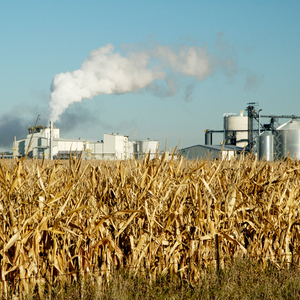USDA funds ACE-led project to help farmers access LCFS markets

September 24, 2021
BY Erin Krueger
The USDA on Sept. 24 awarded $7.5 million to a Regional Conservation Partnership Program led by the American Coalition for Ethanol. The program will help secure farmers premier access to low carbon fuel standard (LCFS) markets through the adoption of USDA climate-smart agricultural practices.
According to the USDA, the ACE-led project will create a strong market-driver for climate-smart agricultural practices, such as no-till, cover crops, and nutrient management, for farmers in the grainshed supplying a farmer-owned ethanol plant in South Dakota. The agency estimates the project will generate an estimated $18.5 million in new revenue annually in the RCPP project area.
The ACE-led project is one of 15 projects awarded a share of $75 million through RCPP’s Alternative Funding Arrangements.
Advertisement
Advertisement
“The AFA component of RCPP is designed for partners who are thinking outside of the box to address some of our most pressing natural resource challenges,” said Terry Cosby, chief of USDA’s Natural Resources Conservation Service. “RCPP is a testament to the power of partnership. By combining local expertise, partner resources, federal assistance and a shared commitment to conservation we can advance critical priorities and innovative solutions that are key to addressing the climate crisis.”
Partners in the ACE-led project include South Dakota Corn Growers, Dakota Ethanol, South Dakota State University, Cultivating Conservation, and collaborator Sandia National Laboratories. The project partners will use the financial assistance provided by the USDA to compensate farmers for adopting climate-smart practices that sequester carbon, reduce greenhouse gas (GHG) emissions, and improve soil health.
According to ACE, the partnership will pair USDA technical assistance with significant partner financial and in-kind contributions to quantify the resulting soil health and GHG benefits, correlate them with existing models, and develop a non-proprietary verification system. This data will then be used to secure farmer access to clean fuel or LCFS markets for the first time based on the GHG benefits of USDA climate-smart practices.
Changes to be incentivized by the new RCPP from conventional tillage to no-till would sequester an additional 91,000 metric tons of GHG emission per year in the project area. If those reductions were credited in existing mandatory clean fuel markets, such as the California LCFS, ACE said farmers could generate more than $10 million a year in new revenue.
Advertisement
Advertisement
“We share the Biden administration’s goal of reaching net-zero GHG emissions by 2050,” said Brian Jennings, ACE CEO. “Ethanol can reach net-negative carbon intensity by crediting biofuel crops grown with climate-smart farming practices in clean fuel markets via carbon capture and sequestration (CCS) and continued carbon reduction improvements at individual ethanol facilities.”
“USDA’s investment in our project to validate the benefits of climate-smart practices in further reducing corn ethanol’s carbon footprint is a vote of confidence in the role farmers can play in reaching net-zero emissions by 2050,” Jennings added. “Further, this project will provide a prototype for how clean fuel policies can reward farmers for climate-smart practices that reduce the overall carbon intensity of corn ethanol.”
A full copy of ACE’s announcement is available on the organization’s website.
Related Stories
The USDA significantly increased its estimate for 2025-’26 soybean oil use in biofuel production in its latest World Agricultural Supply and Demand Estimates report, released July 11. The outlook for soybean production was revised down.
The U.S. Energy Information Administration maintained its forecast for 2025 and 2026 biodiesel, renewable diesel and sustainable aviation fuel (SAF) production in its latest Short-Term Energy Outlook, released July 8.
XCF Global Inc. on July 10 shared its strategic plan to invest close to $1 billion in developing a network of SAF production facilities, expanding its U.S. footprint, and advancing its international growth strategy.
U.S. fuel ethanol capacity fell slightly in April, while biodiesel and renewable diesel capacity held steady, according to data released by the U.S. EIA on June 30. Feedstock consumption was down when compared to the previous month.
XCF Global Inc. on July 8 provided a production update on its flagship New Rise Reno facility, underscoring that the plant has successfully produced SAF, renewable diesel, and renewable naphtha during its initial ramp-up.
Upcoming Events










